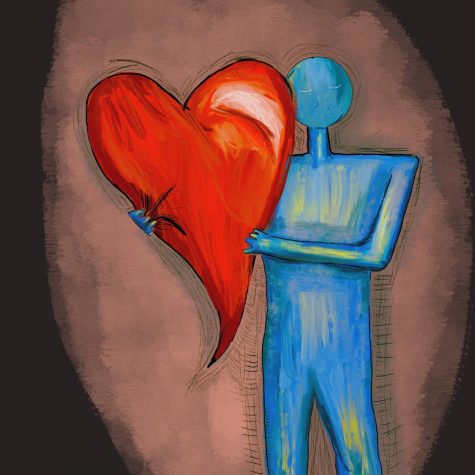What’s love got to do with it?
April 22, 2021
What comes to your mind when you think of love? A couple of weeks ago, I was assigned a reading on love for one of my classes. Admittedly, I initially didn’t see the significance of theorizing about love as I’ve always perceived love to be a private feeling that we rarely discuss with others. Why was it important that I talk about love with my classmates?
The author of the reading, Gloria Jean Watkins (who goes by the pen name “bell hooks”), provides an answer to this question by framing love as a verb and stating that our society should be founded on principles of love. I believe that in order to promote social good, we must actively seek to foster love in all contexts of our lives, whether that be when making individual decisions or in our daily interactions with others.

In order to promote love in society, the word love should be treated as a verb rather than a noun. When love is defined as a verb, the responsibility to take loving actions is placed on us; we are not waiting for love to find us, but rather, we are creators of love. It is equally important that we have an ethical, shared definition of love so that we are able to effectively understand and promote love in society.
The benefit of having a shared definition of love, one that we can all understand and agree upon, is that we are able to foster love without having to search through hundreds of definitions of love, some of which may be unethical. We don’t have time to wait; love is needed now.
Now, what does this ethical, shared definition of love look like? hooks supplies an answer to this question by providing a definition of ethical love. They define love as a combination of care, affection, recognition, respect, commitment, trust and open and honest communication. By having a distinct definition, we can begin to identify unloving instances and fix them.
My urgency to promote love is fueled by the fact that our society does not come from a place of love. Although our country’s founding documents are based on notions of liberty and equality, our institutions and policies often do not act on a love ethic, but rather, on principles of racism, transphobia, homophobia, sexism and ableism.
For example, the transphobic lawmakers who advocate for anti-transgender state laws have the full intention of disrespecting transgender youth and denying them basic human rights. A society focused on the principles of love would instead allow for policymakers and politicians to create and pass legislation that not only positively impacts their constituents but also does not intentionally leave out or marginalize any folks. Coming from a place of love requires protecting the most vulnerable individuals in society.
In order to combat the hate and discrimination that infuses our society and help foster a better world, each of us must take loving actions. We can demonstrate love by reaching out to local policymakers and demanding justice, signing up to volunteer at the COVID-19 vaccine clinics and even just entering daily conversations from a place of respect and care. Everybody has the ability to exercise love — just do it!





